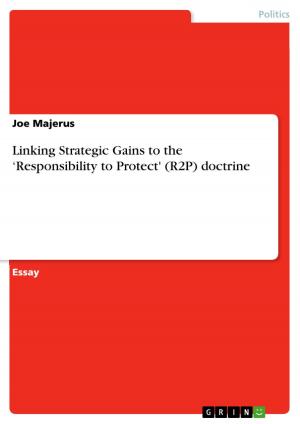Issues and Debates on Diagnostics and Medication of Posttraumatic Stress Disorder
Nonfiction, Health & Well Being, Psychology, Mental Health| Author: | Raja Sree R Subramaniam | ISBN: | 9783668213890 |
| Publisher: | GRIN Verlag | Publication: | May 10, 2016 |
| Imprint: | GRIN Verlag | Language: | English |
| Author: | Raja Sree R Subramaniam |
| ISBN: | 9783668213890 |
| Publisher: | GRIN Verlag |
| Publication: | May 10, 2016 |
| Imprint: | GRIN Verlag |
| Language: | English |
Literature Review from the year 2016 in the subject Psychology - Clinic and Health Psychology, Abnormal Psychology, grade: A, University of Derby, course: Psychology, language: English, abstract: Whether it is war-traumatized soldiers, refugees, victims of sexual assault or victims of catastrophic life events, the psychiatric consequence of the posttraumatic stress leading to a mental disorder if left untreated can be debilitating. The prevalence of posttraumatic stress disorder (PTSD) in countries that have suffered war and political conflicts such as Northern Ireland, Uganda and Palestine ranged between twenty to seventy percent. Analysis of epidemiological surveys by the World Mental Health, between 2012 until 2015 for non-war related traumatic event reported 54% of lifetime prevalence in Europe, 56.1% in Italy and 60.6% in Northern Ireland. Given the potential economic and psychosocial impact of PTSD, efforts to identify biomarkers of risk, disease and treatment of PTSD is of significant public health importance. The psychiatric codification of PTSD has made possible for patients to access medical care and treatment. Likewise, mental health professionals were able to predict reliably, distinguish and diagnose trauma-associated disorder from other major mental illness. However, the issue of whether PTSD owes its existence to environmental context, individual differences and learning or whether it is entirely neurobiological determined has been debated fiercely. Findings from the neuroimaging and translational research provide evidence that supports the neurobiological theories of etiology but yet to find a specific biomarker for PTSD. In fact, research outcome strongly suggest PTSD is a result of interaction between biological, individual predisposition and environmental context.
Literature Review from the year 2016 in the subject Psychology - Clinic and Health Psychology, Abnormal Psychology, grade: A, University of Derby, course: Psychology, language: English, abstract: Whether it is war-traumatized soldiers, refugees, victims of sexual assault or victims of catastrophic life events, the psychiatric consequence of the posttraumatic stress leading to a mental disorder if left untreated can be debilitating. The prevalence of posttraumatic stress disorder (PTSD) in countries that have suffered war and political conflicts such as Northern Ireland, Uganda and Palestine ranged between twenty to seventy percent. Analysis of epidemiological surveys by the World Mental Health, between 2012 until 2015 for non-war related traumatic event reported 54% of lifetime prevalence in Europe, 56.1% in Italy and 60.6% in Northern Ireland. Given the potential economic and psychosocial impact of PTSD, efforts to identify biomarkers of risk, disease and treatment of PTSD is of significant public health importance. The psychiatric codification of PTSD has made possible for patients to access medical care and treatment. Likewise, mental health professionals were able to predict reliably, distinguish and diagnose trauma-associated disorder from other major mental illness. However, the issue of whether PTSD owes its existence to environmental context, individual differences and learning or whether it is entirely neurobiological determined has been debated fiercely. Findings from the neuroimaging and translational research provide evidence that supports the neurobiological theories of etiology but yet to find a specific biomarker for PTSD. In fact, research outcome strongly suggest PTSD is a result of interaction between biological, individual predisposition and environmental context.















